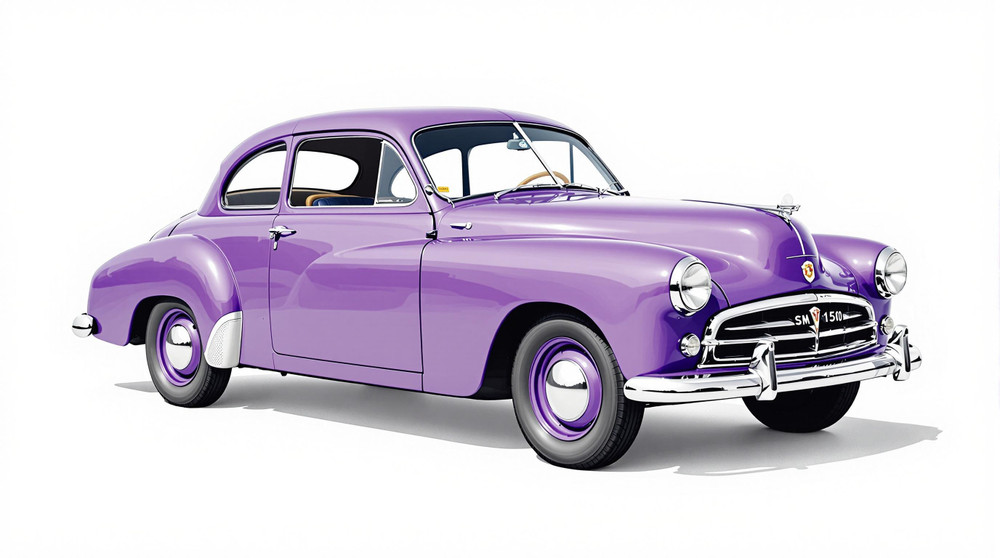Image of 1950 Singer Sm1500, Note: These illustrations use artistic license and may differ from actual historical models.
Performance Metrics
Fundamental Metrics
Emotional Appeal
MMP Rating
| Engine Specifications | |
|---|---|
| Engine: | 1.5L I4 |
| Displacement: | 1497cc |
| Horsepower: | 40-50 HP |
| Torque: | Estimated 60-70 lb-ft |
| Compression Ratio: | 7.5:1 |
| Ignition System: | Distributor and coil |
| Cooling System: | Water-cooled |
| Performance Specifications | |
| 0-60 Time: | Estimated 30 seconds |
| 1/4 Mile Time: | Not available |
| Top Speed: | 75 mph |
| Transmission and Drive | |
| Drive Type: | Rear-wheel drive |
| Transmission Type: | 4-speed manual |
| Fuel and Efficiency | |
| Fuel System Type: | Carburetor |
| MPG: | Estimated 25-30 MPG |
| Dimensions and Brakes | |
| Brakes: | Drum brakes |
| Wheelbase: | 97 inches |
| Weight: | 2,200 lbs |
Note: Specifications for classic cars are given to the best of our ability, considering the limited and variant data available.
Introduction
As the curtain rose on the 1950s, a distinctive British saloon car made its debut: the Singer SM1500. Nestled in the heart of Coventry, England, Singer Motors Limited crafted this vehicle with a blend of modesty and ambition. The SM1500 was a post-war promise of comfort and reliability, designed to cater to a market yearning for new beginnings. Notably, it was among the first vehicles to feature a unitary construction at a time when most cars still used a separate chassis and body. This innovation not only set it apart from its contemporaries but also marked a step forward in automotive engineering.
Design and Innovation
The Singer SM1500's exterior was a portrait of post-war British car design, with its upright grille and sweeping fenders that echoed the optimism of the era. The car's profile was elongated, presenting an air of elegance that belied its accessible price point. Inside, passengers were greeted with an interior that prioritized comfort, featuring plush seating upholstered in quality fabrics that varied depending on trim levels. Wood accents often adorned the dashboard, enhancing the sense of craftsmanship.
Technologically, the SM1500 was ahead of its time with independent front suspension and a four-speed manual gearbox. Color options ranged from conservative blacks and blues to more adventurous hues that mirrored the era's fashion trends. The most iconic body style was undoubtedly the four-door saloon, which captured the essence of family motoring in post-war Britain.
Historical Significance
The Singer SM1500's introduction marked a significant moment for Singer Motors as they ventured into uncharted territory with unitary construction. This leap forward not only influenced future models from Singer but also signaled to other manufacturers that traditional body-on-frame designs were no longer the only path forward. The SM1500's blend of innovation and tradition provided a template for saloon cars that would be followed throughout the 1950s and beyond.
Performance and Handling
Under the bonnet lay a 1.5-liter overhead-cam engine that propelled the SM1500 to respectable top speeds for its class. Acceleration from 0-60 mph was modest by today's standards but adequate for the leisurely pace of post-war motoring. Handling was characterized by a smooth ride quality that absorbed bumps with grace, though crosswinds could present challenges due to the vehicle's upright stature. Driving an SM1500 was an exercise in patience and poise, with an engine note that hummed a tune of simpler times.
Ownership Experience
The Singer SM1500 found its niche as an everyday car for families and professionals alike. It could be seen parked in suburban driveways or making regular appearances at local car shows. Maintenance was straightforward enough for DIY enthusiasts of the era, while reliability was generally considered good for a car of its age and complexity.
Fun Facts
The SM1500 may not have been associated with high-profile celebrity ownerships or record-breaking speed trials, but it held its own charm as a workhorse of British roads. Criticisms often centered around its conservative styling and modest performance; however, these same qualities endeared it to those who valued understated reliability over flashiness.
Collector's Information
Today, finding an SM1500 can be akin to uncovering a hidden gem. Production numbers were not astronomical by modern standards, making each surviving example quite special. As for value, well-preserved models can fetch prices that reflect their rarity and historical significance—often ranging from mid-four figures up into five figures depending on condition and originality.
Conclusion
The Singer SM1500 stands as a testament to Britain's automotive resilience in the aftermath of World War II. It encapsulated an era's aspirations while laying groundwork for future innovations—a vehicle truly worthy of remembrance and respect among classic car enthusiasts.
1950 Singer Sm1500 Catalog of Parts
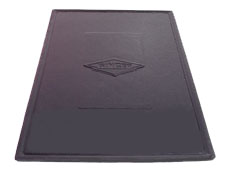 1950 Singer SM1500 Accessory Floor Mat - 12"X17"-AC 48Accessory Floor Mat - made of high quality black rubber with molded original emblem. Also designed to be sewn into new carpets. 12"X17", Each
1950 Singer SM1500 Accessory Floor Mat - 12"X17"-AC 48Accessory Floor Mat - made of high quality black rubber with molded original emblem. Also designed to be sewn into new carpets. 12"X17", Each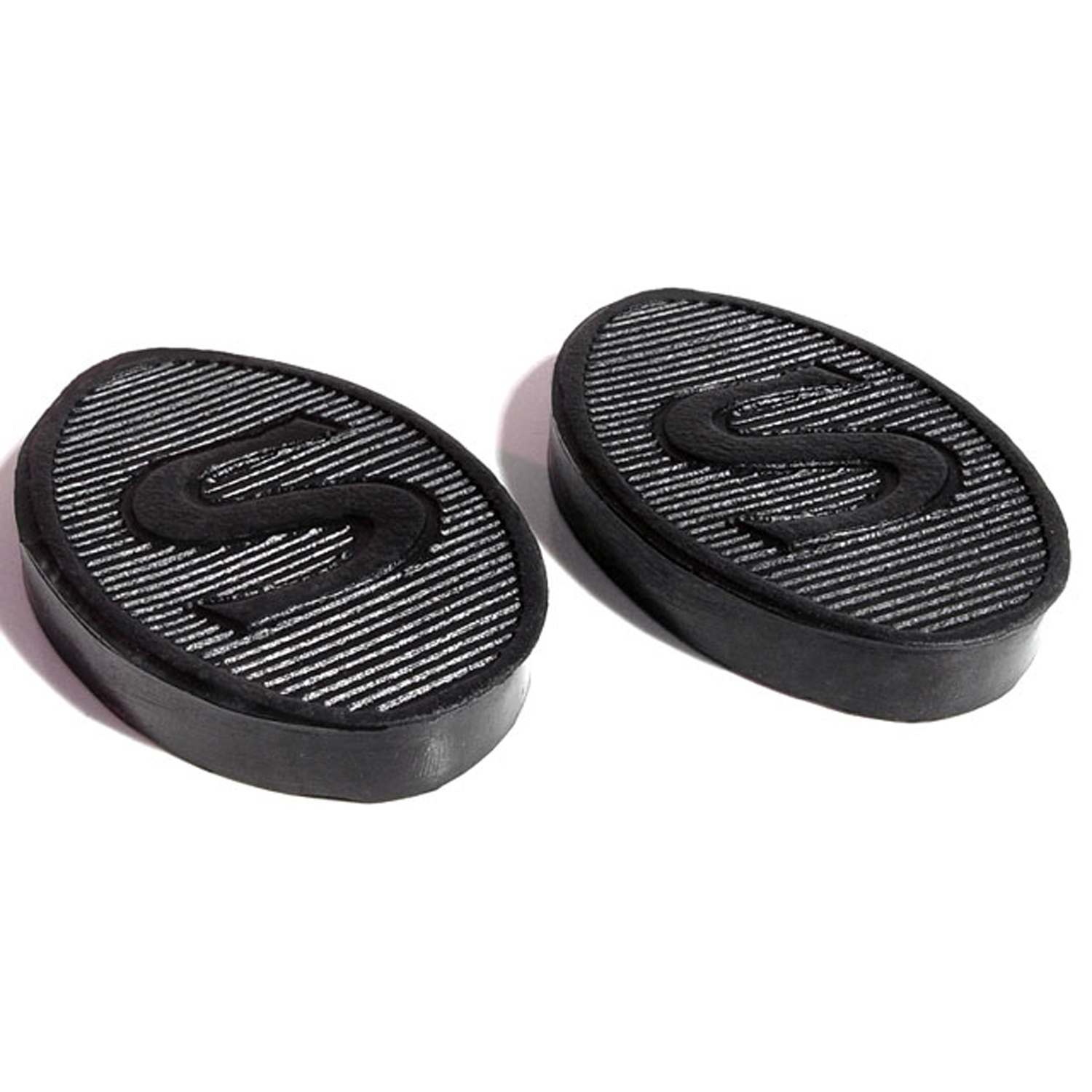 1950 Singer SM1500 Clutch and Brake Pedal Pads. 1-3/4" wide X 3" long. Pair-CB 98Clutch and Brake Pedal Pads. 1-3/4" wide X 3" long. Pair
1950 Singer SM1500 Clutch and Brake Pedal Pads. 1-3/4" wide X 3" long. Pair-CB 98Clutch and Brake Pedal Pads. 1-3/4" wide X 3" long. Pair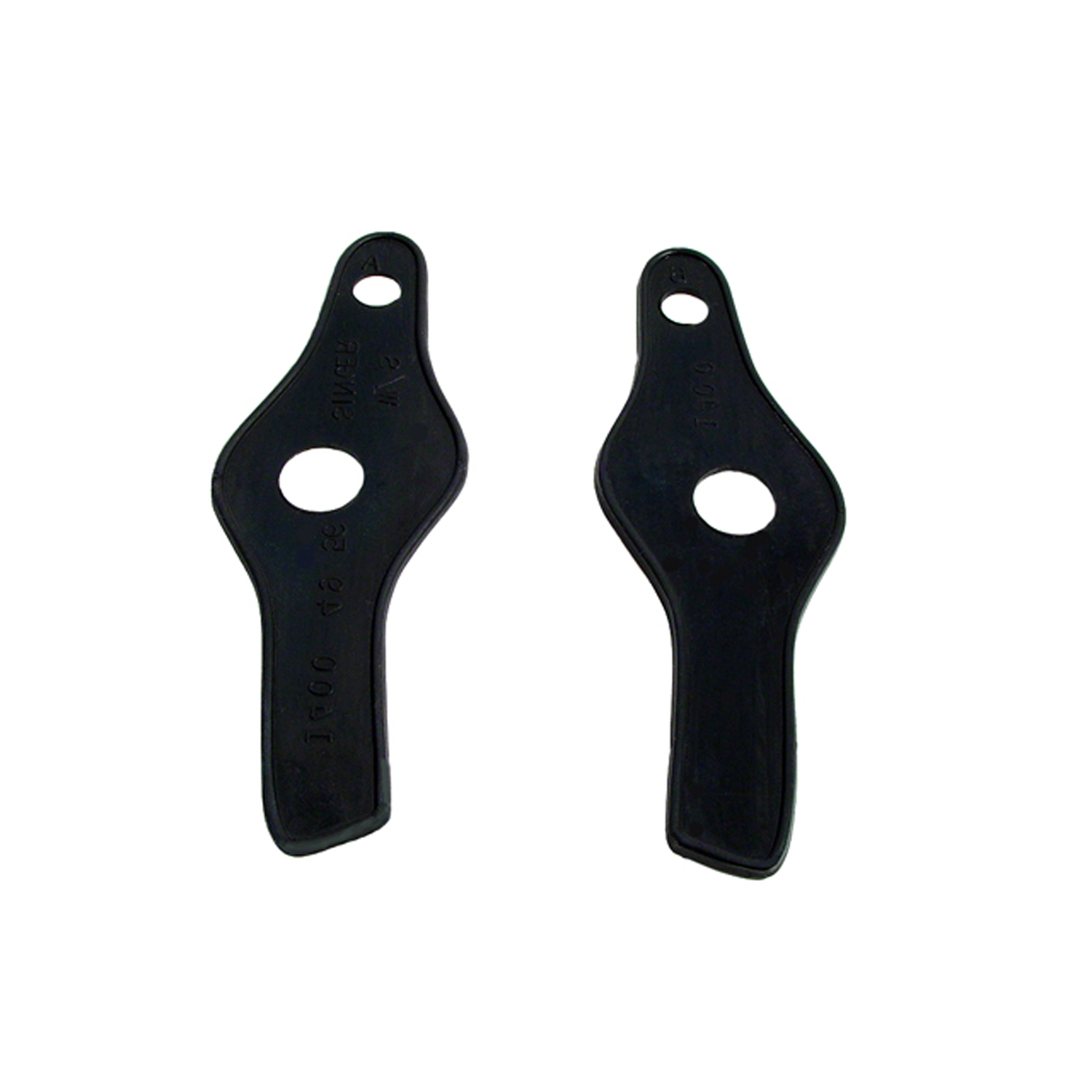 1950 Singer SM1500 Windshield Post Pads. 2-3/8" wide X 6-3/4" long. Pair-MP 1400Windshield Post Pads. 2-3/8" wide X 6-3/4" long. Pair
1950 Singer SM1500 Windshield Post Pads. 2-3/8" wide X 6-3/4" long. Pair-MP 1400Windshield Post Pads. 2-3/8" wide X 6-3/4" long. Pair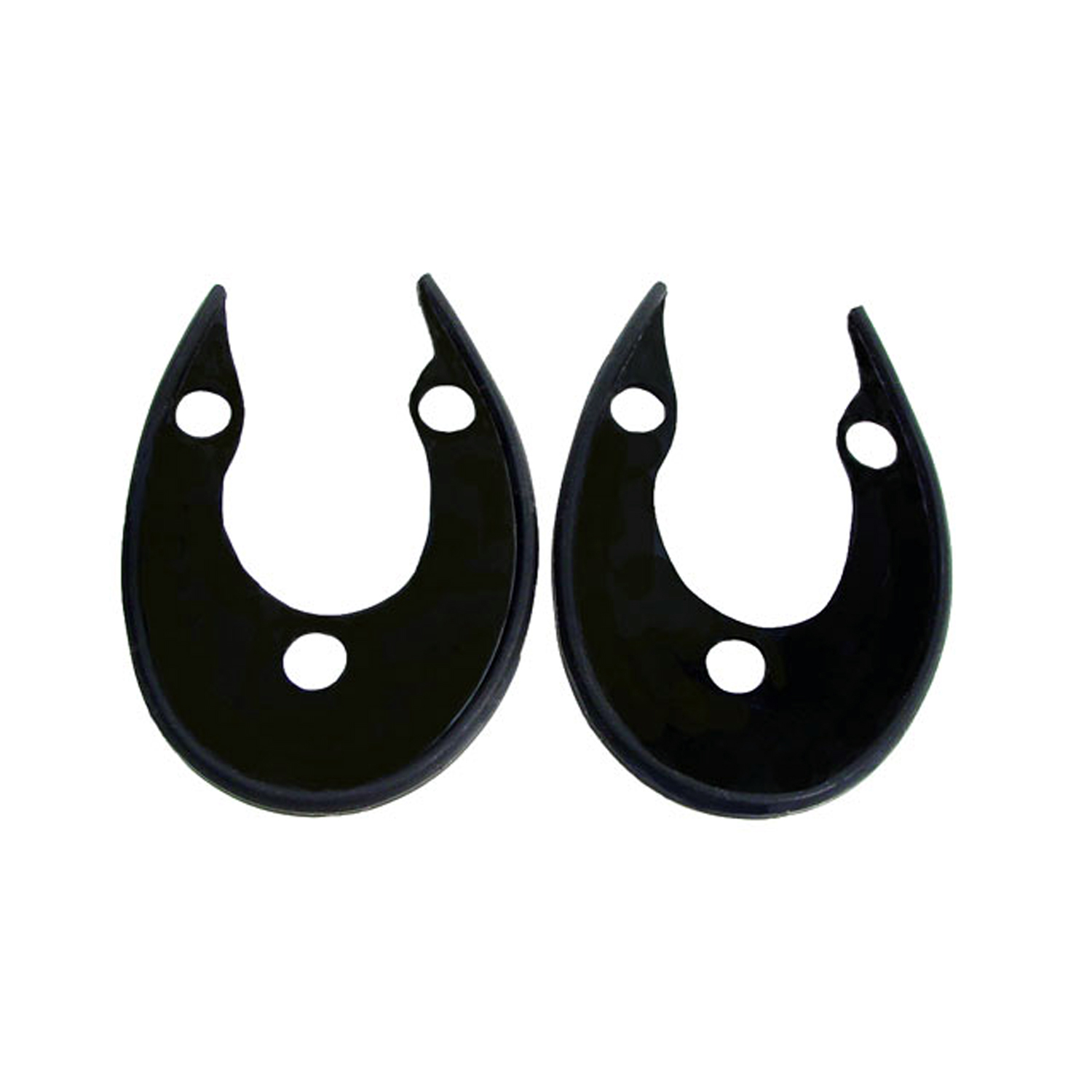 1950 Singer SM1500 Tail-light Pads. 2-3/4" wide X 4" long. Pair-MP 1401Tail-light Pads. 2-3/4" wide X 4" long. Pair
1950 Singer SM1500 Tail-light Pads. 2-3/4" wide X 4" long. Pair-MP 1401Tail-light Pads. 2-3/4" wide X 4" long. Pair 1950 Singer SM1500 Park Light Pads. 1-1/4" wide X 2-3/4" long. Pair-MP 1402Park Light Pads. 1-1/4" wide X 2-3/4" long. Pair
1950 Singer SM1500 Park Light Pads. 1-1/4" wide X 2-3/4" long. Pair-MP 1402Park Light Pads. 1-1/4" wide X 2-3/4" long. Pair 1950 Singer SM1500 Trunk Lock Pad. 1-3/8" wide X 1-1/2" long. Each-MP 1403Trunk Lock Pad. 1-3/8" wide X 1-1/2" long. Each
1950 Singer SM1500 Trunk Lock Pad. 1-3/8" wide X 1-1/2" long. Each-MP 1403Trunk Lock Pad. 1-3/8" wide X 1-1/2" long. Each 1950 Singer SM1500 Door Handle Pads. 1-1/2" wide X 2-5/8" long. Pair-MP 1404Door Handle Pads. 1-1/2" wide X 2-5/8" long. Pair
1950 Singer SM1500 Door Handle Pads. 1-1/2" wide X 2-5/8" long. Pair-MP 1404Door Handle Pads. 1-1/2" wide X 2-5/8" long. Pair 1950 Singer SM1500 Headlight Pads. 3" wide X 4-1/4" long. Pair-MP 1405Headlight Pads. 3" wide X 4-1/4" long. Pair
1950 Singer SM1500 Headlight Pads. 3" wide X 4-1/4" long. Pair-MP 1405Headlight Pads. 3" wide X 4-1/4" long. PairWhy Choose Metro?
For over 100 years, Metro Moulded Parts has been the pinnacle of quality in classic car restoration parts. Our commitment to precision and authenticity in every component ensures a perfect fit and an OEM-level appearance.
- Expert Craftsmanship & Quality: Each part is a testament to our dedication to reliability and perfection, crafted from original designs and thoroughly tested.
- Advanced Technology: We use cutting-edge techniques to create flawless, long-lasting parts that surpass others in performance.
- SuperSoft Sponge – The Ultimate Door Seal: Not only are our door seals 30% softer than competitors', but they're also guaranteed to never leak. They effectively reduce wind and road noise, enhancing your classic car's comfort and driving experience.
- Proudly American: Our parts are a product of American craftsmanship, made in the USA with a spirit of excellence and heritage.
- Unrivaled Warranty: We back our products with a 30-year industry-leading warranty, a testament to our confidence in their quality.
Join us in preserving the legacy of classic cars with parts that are crafted for perfection, not just made.

